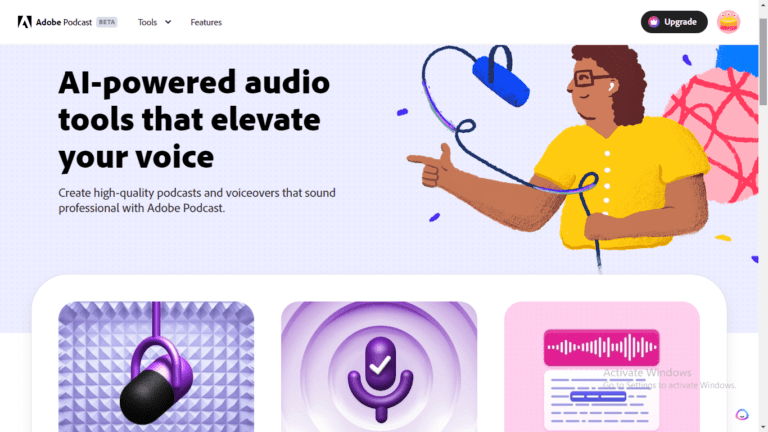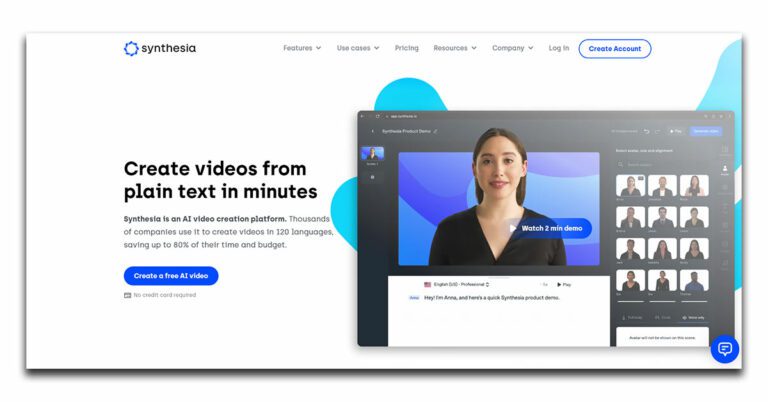Have you ever wondered how can i ask AI a question? You’re certainly not alone.
With the advancement in artificial intelligence technology, asking an AI a question has become easier than ever, you can even ask AI to help you with debt collection.
And while it may seem daunting at first glance, asking meaningful questions about Artificial Intelligence (AI) can be surprisingly simple and immensely rewarding – both for you and your company’s progress.
This informative blog post will discuss common strategies for compelling conversations with your AI system and showcase some exciting use cases demonstrating what an artificially intelligent conversation partner can do.
So get comfortable and keep reading to learn more about the power of this fantastic new technology.
Table of Contents
- Understand the basics of Artificial Intelligence (AI)
- Determine what type of question you need to ask AI
- Research the available AI platforms for your needs
- Choose a platform and familiarize yourself with its features.
- Craft your question in a way that the AI understands
- Ask the question and consider how you will interpret the results.
- Follow up with additional questions to refine your understanding of the answer (How can I Ask AI a Question?)
Understand the basics of Artificial Intelligence (AI)

To start a meaningful conversation with AI, one must first understand the basics of Artificial Intelligence.
AI is a branch of computer science dedicated to creating systems capable of performing tasks that usually require human intelligence.
These tasks include learning, problem-solving, recognizing patterns, understanding and processing natural language, and decision-making.
AI can be classified into two types: Narrow AI, designed to perform a specific task, such as voice recognition, and General AI, which can perform any intellectual task a human being can do.
This understanding of AI is crucial as it provides insight into the capabilities and limitations of AI systems, allowing for more effective and relevant interaction.
Determine what type of question you need to ask AI
Before launching your query towards an AI system, you must identify what type of question you need to ask.
Are you seeking factual information, analytical insights, predictions for future trends, or solutions to complex problems?
AI can respond to these types of inquiries:
- Fact-based Questions: These questions are straightforward and seek concrete answers. They are answerable with a fact or information that is generally agreed upon. Example: “What is the capital of France?”
- Analytical Questions: These questions require the AI to analyze and derive insights from data or information. Example: “What is the most visited page on my website?”
- Predictive Questions: These questions need the AI to make predictions based on patterns identified in data. Example: “What will be the sales trend for the next quarter?”
- Advisory Questions: These questions call for the AI to provide recommendations or advice based on analyzing a situation or data. Example: “Which marketing campaign should I invest in?”
Once you’ve determined the type of question you need to ask, you can structure it best suited for an AI to understand and provide a helpful response.
Research the available AI platforms for your needs

Numerous AI platforms are available today to cater to various needs.
Researching and finding the platform that fits your specific needs is essential.
ChatGPT
ChatGPT is an AI model developed by OpenAI. It is fine-tuned for conversations and can generate creative, meaningful, and nuanced responses.
It is an excellent tool for diverse applications, from drafting emails to writing code or even tutoring in various subjects.
With its ability to handle short and long conversations in a text-based format, ChatGPT has been utilized in various customer service, content creation, and education scenarios.
It is also an ideal platform for those asking an AI system questions — fact-based, predictive, analytic, or advisory.
However, it’s essential to remember that while ChatGPT can generate impressive results, like any AI, it’s not foolproof, and its responses should be used with discretion.
Bard
Bard is another innovative AI technology designed for storytelling. It leverages the power of machine learning to create immersive and engaging narratives.
Whether you’re a writer brainstorming for fresh ideas or a game developer needing captivating storylines, Bard’s capabilities are vast.
The platform can assist in conceptualizing and crafting complex story arcs, character development, and even dialogues, all in a manner that resonates with your target audience.
However, providing clear and specific prompts to drive the desired output is crucial.
Furthermore, as with any AI tool, Bard’s suggestions should be critically evaluated and creatively adapted to ensure originality and relevance.
Microsoft Bing
Microsoft Bing is a search engine powered by AI that helps users find information, images, videos, and more through typed or spoken queries.
It utilizes natural language processing (NLP) technology to understand the context of questions and provides relevant results.
This makes it an excellent platform for fact-based and analytical questions.
However, like most search engines, its accuracy depends on the quality of the data and information it has access to, so results may vary.
Choose a platform and familiarize yourself with its features.
Once you’ve identified a platform that aligns with your needs, familiarize yourself with its features, capabilities, and limitations.
Each AI platform will have unique functionalities that can be leveraged for different tasks.
For instance, if you’ve chosen ChatGPT, explore its ability to generate creative text and check its performance with different prompts.
Conversely, if you’ve opted for Bard, investigate its story-generating features to create immersive narratives.
In the case of Microsoft Bing, discover how its search algorithms and natural language processing capabilities can provide the most relevant answers to your queries.
Remember, the more you know about your chosen platform’s potential, the more effectively you can use it to your advantage.
Craft your question in a way that the AI understands
Crafting your question so the AI comprehends is critical to getting the desired response. Here are a few steps to guide you:
- Keep it Simple: Avoid jargon and complex phrases. Use clear and concise language, sticking to the point.
- Be Specific: AI systems work best with detailed queries. The more specific your question, the more accurate the response will be.
- Context Matters: While formulating your question, provide enough context. This will improve the AI’s understanding of your query and the relevance of its response.
- Question Format: Pay attention to how you phrase your question. Fact-based queries can be direct, while advisory or predictive questions might need to provide some background information.
Remember, different AI platforms may require different styles of questioning.
Continually refining and experimenting with your approach will help you master the art of questioning an AI system effectively.
Ask the question and consider how you will interpret the results.
Once your question is ready, input it into the AI platform.
Different platforms may have different interfaces for inputting questions, but most will have a text box where you can type or paste your question.
The AI will process and respond after you’ve asked your question.
The response time can vary based on the complexity of the question and the platform’s capabilities.
Interpreting the results requires understanding how AI operates.
The AI’s response is based on patterns, correlations, and information it has been trained on, but it doesn’t understand the content as humans do. It’s essential to evaluate the answers provided by the AI critically.
Cross-checking the information with reliable sources can ensure accuracy for fact-based and analytical questions.
For predictive and advisory questions, consider the AI’s output as one of the various factors in your decision-making process.
Remember, AI can provide valuable insights but is not a substitute for human judgment.
Follow up with additional questions to refine your understanding of the answer (How can I Ask AI a Question?)
After receiving an answer from your chosen AI platform, you might find it helpful to ask follow-up questions to gain a deeper understanding or to clarify certain aspects of the response.
Here are some strategies to help you do this effectively:
- Ask for Clarification: If a part of the AI’s response is unclear, don’t hesitate to ask for further explanation. For instance, ask, “Could you elaborate on…?” or “What do you mean by…?”.
- Probe Deeper: Ask more in-depth questions if the AI’s response sparks your curiosity. For instance, “Could you provide more examples of…?” or “How does this relate to…?”.
- Confirm Understanding: Paraphrase the AI’s response and ask the AI to confirm your understanding. For example, “So, what you’re saying is… Is that correct?”.
Remember, the effectiveness of follow-up questions can depend on the capabilities of the AI platform you’re using.
Some platforms may struggle with maintaining context across multiple queries, so consider this when formulating your questions.





